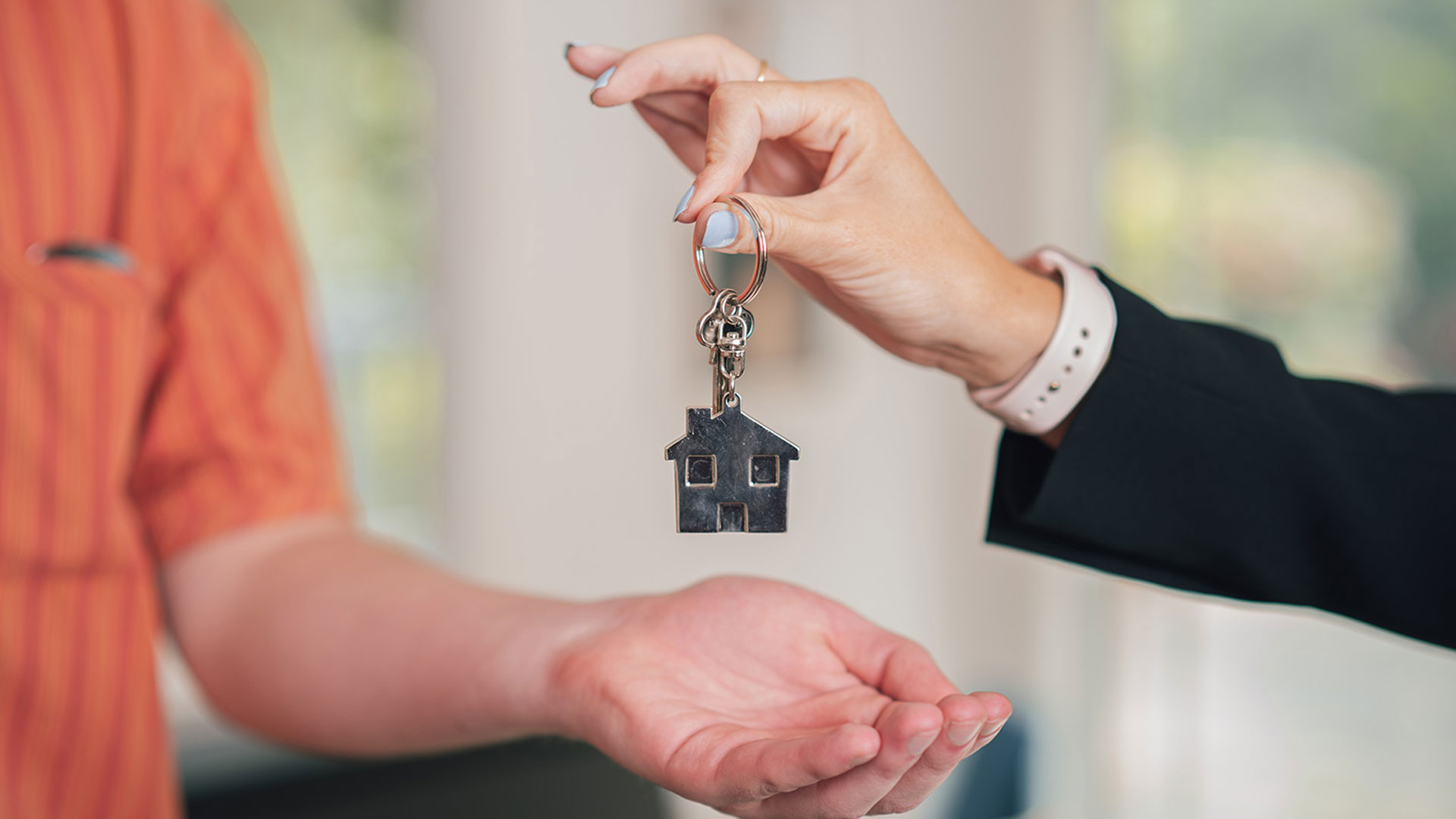Buying guide
Everything you need to know about home loan deposits in New Zealand
Your straightforward guide to home loan deposits in Aotearoa.
Last updated: 27 May 2024
What you'll learn
- What is a home loan deposit?
- How much deposit is needed to buy a house in NZ?
- Why do lenders care about my home loan deposit?
- What can I use for my home loan deposit?
- Using your KiwiSaver for your home loan deposit
- What is the First Home Loan scheme?
- Quick tips for saving for a home loan deposit
If you’re just starting on your home buying journey in New Zealand, you’re probably coming across a whole new world of jargon. This is particularly true when it comes to the finances of buying a home. As well as new terminology, you’ll likely find yourself wading through a whole bunch of figures around things like home loan deposits, interest rates and mortgage repayment calculations.
To help you get to grips with this stuff, we’re going to zero in on one of the most important things to understand – home loan deposits.
We’ll look at what a home loan deposit is, how much you’re likely to need, and some of the ways you can get there.
How much deposit is needed to buy a house in NZ?
The conventional wisdom is that you’ll need to save up a deposit that is equal to 20% of the value of the home you want to buy. In March 2023, our Property Price Index showed that the average house price in Aotearoa New Zealand was $866,000. So, taking 20% of that would give you an average required deposit of $173,200. Of course, this is a national average, so some places (e.g. Auckland and Wellington) will be higher, while others (e.g. Southland) will be lower.
However, it’s possible to find low deposit home loans in NZ, where you might only need to be able to provide 5% or 10% of the property asking price in order to be granted a loan. Taking our national average property price example, 5% of this would be $43,300. The First Home Loan scheme is one such example of how to find a less expensive deposit, and we’ll talk about this more below.
Most home deposits are around 20% of the property's asking price.
Why do lenders care about my home loan deposit?
When a lender agrees to loan you money they’re essentially taking a risk that you’ll be able to pay them back, and there are a number of things that they do to give them peace of mind.
By assessing how much you’ve been able to save up for a house deposit, the bank gets an idea of how risky you are for them to lend to. If you have a larger deposit, chances are you’re either in a well-paying job, or you’re a very good saver. Or ideally, from the bank’s perspective, you’re both. So, by saving up a bigger deposit, you’re likely to get a larger home loan offer from the bank in return.
Another way for banks to offset their risk is to charge interest rates. Not only is this a way for the lender to actually make money, but it also incentivises you to pay the loan off faster. The less time you take, the less you pay in interest. Increasing interest rates is also one thing banks can do if they provide a low deposit home loan. Lending money to people with a smaller house deposit involves a greater risk (as the bank is providing more of their cash up front) so they may charge a higher interest rate to compensate.
What can I use for my home loan deposit?
Lenders aren’t only interested in how much you’ve saved, but also where it’s come from. Many home loan lenders in NZ will require that at least 5% of your home loan deposit comes from ‘genuine savings’. Genuine savings means money that you’ve actually saved up yourself, usually by putting aside a proportion of your income from each pay cheque, or through your KiwiSaver. Cash gifts from family don't count as geniune savings.
Using your KiwiSaver for your home loan deposit
First home buyers (and a few select others) can use their KiwiSaver funds to help reach their home loan deposit target.
There are a number of criteria you’ll need to meet in order to do this:
- You’re looking to buy your first home, or land to build your first home on (though you might still be able to use your KiwiSaver even if this isn’t your first property, see below).
- You’ve been a member of KiwiSaver, or complying superannuation fund, for at least three years.
- You’re buying a home or land in Aotearoa New Zealand
- You intend this property to be your main place of residence.
- You’ve never owned a house or land before - again, there are exceptions to this, such as previous ownership of Māori land.
Even if you’ve previously bought a house or land, if you’re in a similar financial position to a first home buyer and no longer own that asset, you might also be eligible to use your KiwiSaver.
Different KiwiSaver providers have different rules for doing this, and how much you’ll be able to withdraw, so it’s worth having a chat with yours to see what’s possible in your case. Some KiwiSaver providers allow you to withdraw everything except the last $1,000 of what you have in there.
Using your KiwiSaver can be a big help in reaching your home loan goals.
What is the First Home Loan scheme?
While the First Home Grant was scrapped in May 2024, you might still be able to take advantage of the First Home Loan. The First Home Loan scheme is targeted at first home buyers struggling to save a deposit but who are able to make regular home loan repayments.
If you’re eligible for the First Home Loan, you’ll only need to contribute a minimum deposit of 5% rather than the typical 20%.
There are a number of criteria you’ll need to meet to be eligible for the First Home Loan:
- Be an NZ citizen, permanent resident or resident who is ordinarily resident in the country
- Be a first home buyer or someone who’s owned a home before but is in a similar financial position to a first home buyer
- Earn no more than $95,000 (before tax) for the last 12 months for a single person with no dependents, or
- Earn no more than $150,000 (before tax) for the last 12 months for a single person with 1 or more dependents, or
- Earn no more than $150,000 (before tax) for the last 12 months for two or more buyers, regardless of dependents
- Intend to live in the home you’re buying as your primary residence
- Be able to contribute a minimum deposit of 5% towards the home price
- Meet the lending requirements from the lender for a home loan
- Not own other property (excluding ownership of Māori land)
- Pay a 1% Lender’s Mortgage Insurance (LIM) premium and loan application fee (if applied by the lender).
Quick tips for saving for a home loan deposit
- Create a budget: there’s no way you’ll meet your goals without a clear roadmap to get there.
- Use your KiwiSaver: this can go a long way to getting to your deposit goal faster.
- Consolidate your debts: paying off a number of debts? If you can, consider merging them so that you pay less interest.
- Incentivise saving: look at bank accounts that provide bonus interest if you meet a regular savings goal. This way, you’re earning through saving.
- Talk to your parents: there are many ways family can help you save for your deposit. This might involve a one off cash gift, or moving back home for a while to cut out your renting costs.
- Ask for a payrise: one way to reach your deposit target quicker is to ask your boss for a payrise.
Author
Other articles you might like



